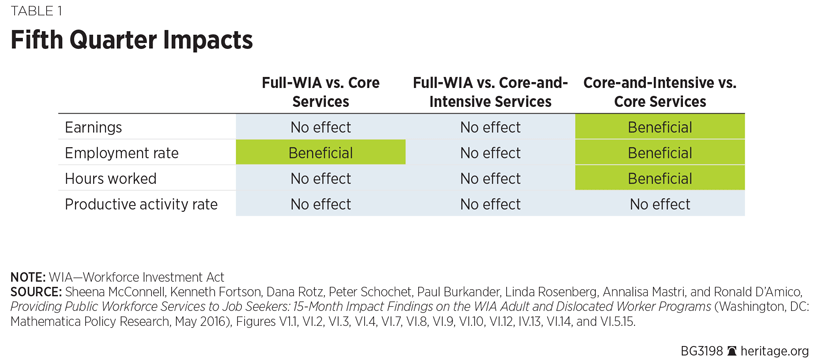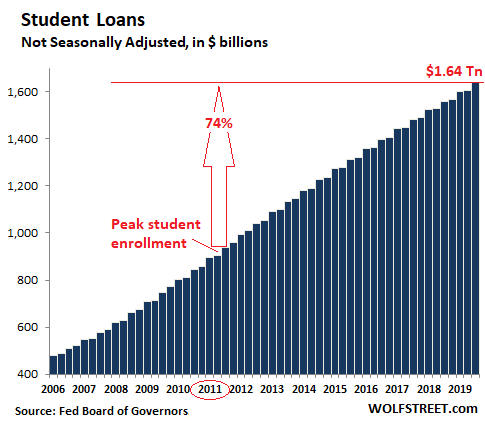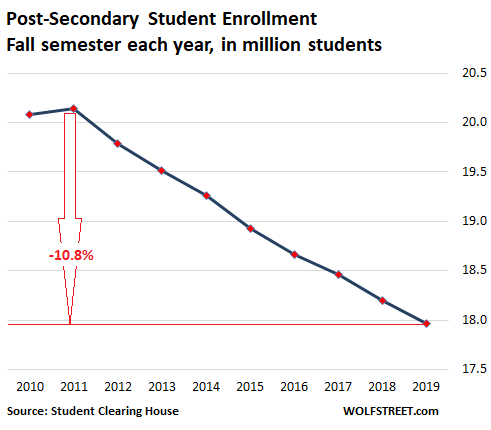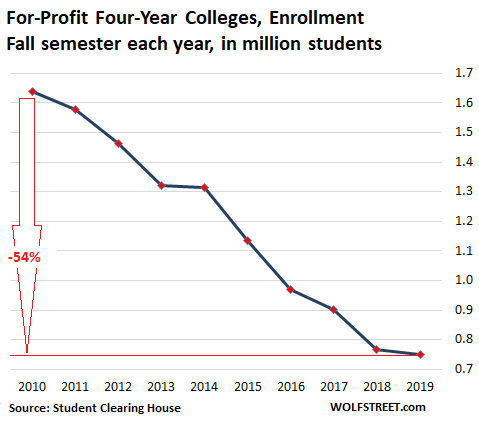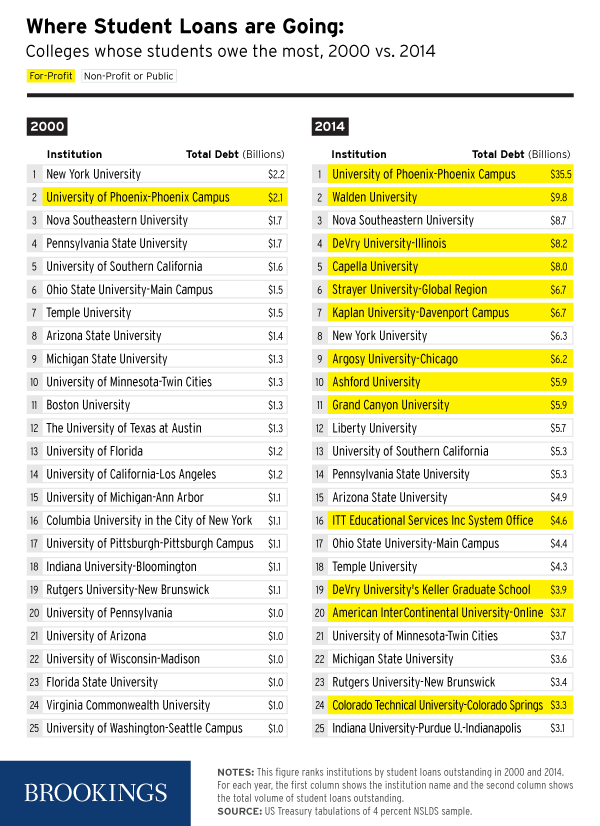|
4.
The Growing Skill Divide in the U.S. Labor Market
-
Cognitive Nonroutine: managers, computer scientists,
architects, artists, etc.
-
Manual Nonroutine: food preparation, personal care,
retail, etc.
-
Cognitive Routine: office and administrative, sales,
etc.
-
Manual Routine: construction, manufacturing,
production, etc.
 |
5. Recent Job Growth
...stark
contrast between the skill requirements in the two occupational groups growing
the fastest.
The cognitive nonroutine group requires complex decision-making, independent
working conditions and less physical effort, while the manual nonroutine group
still requires quite a bit of physical effort and does not involve a high level
of cognitive tasks."
See
Public Policy Affects Income Inequality
Federal Job Training Fails Again
|
|
The ticking screen time bomb | "The
key is relationships": Personalized learning at Learn4Life charter
schools | NEA
embraces the woke agenda — but votes down “student learning” |
For over a decade prior to 2012, homeschooling numbers were surging, doubling between
1999 and 2012.
Two, homeschooling is growing more racially diverse. While whites are still a
majority of homeschoolers (59 percent), they make up 10 percentage points less
of the total than in 2012 (69 percent), a difference that is large, but not
statistically significant.
Three, it’s possible that homeschooling is becoming less religiously motivated.
There was a 13 point drop (from 64 percent to 51 percent) in parents who
home school because they find it important “to
provide religious instruction.”
The percent of parents who home school because it was important to
“provide moral instruction” dropped from 77 percent to 67 percent.
Should the numbers hold up, they could portend a version of homeschooling that’s
considerably smaller, less white, and less religious.
Those would all be a sea change from the homeschooling we’ve known for the past
twenty years. Time will tell if that actually happens.
|
|
See
Solving the Lack Of Good Jobs
 |
More Education is Not the Answer

|
Well, 2019 is about to go in the books. I thought 2018 was a strange
year, for America and for education alike. Well, as the man said, “You
ain’t seen nothing yet.” Part of me figures that this means we’re due
for something different in 2020—but another part is muttering, “Yeah,
that’s what you thought last year.” In any event, before we turn the
page, let’s take a quick spin through the good, the bad, and the ugly of
2019. In that spirit, my remarkably talented RAs Hannah Warren and RJ
Martin sat down with me to sift through the last year’s archives and tag
the top 10 columns. We took into account web views, reader reaction, our
personal preferences, and the secretive algorithm cooked up by the home
office in Burbank, in order to bring you the very best of RHSU, circa
2019.
There were a few that didn’t make the final cut but that seemed to merit
a mention. So I’ll give a quick nod to three that just missed the cut: Four
Surprising Truths About U.S. Schooling (June 24, 2019), When
Did Good Parenting Become a Problem? (March 25, 2019), and 4
Reasons I’m Wary of School Reform’s Pivot to ‘Practice’ (January
28, 2019). Now, without further ado, here are the top 10 RHSU columns of
2019:
10. SEL
Is Easy to Love, Which Should Make Us Nervous, January
21, 2019: When reforms seem intuitive, it’s natural for supporters
to focus on “scale” and “implementation” rather than consider what
could possibly go wrong.
9. Rejecting
Personal Responsibility Is No Way to Promote Educational Equity,
September 9, 2019: Fearing to tell students they’re responsible for
doing their part is to set them up for failure.
8. The
Secret Source of Lost Learning and Educator Burnout,
June 10, 2019: Teachers spend more than a third of their
instructional time on tasks other than instruction. And that’s
before we add in paperwork done outside the classroom.
7. How
to Make the Case for School Choice, October 28, 2019:
Choice advocates tend to argue that school choice “works,” the
public school system is a failure, and moral authority is on their
side. There’s a much stronger argument.
6. The
Problem With Education Research Fixated on ‘What Works?’,
April 22, 2019: Our relentless focus on “What works?” has rewarded
programs designed to yield short-term bumps in test scores while
distracting attention from more fundamental and complex efforts.
5. Talking
Personalized, Data-Rich Equity With Education Guy Paul Banksley,
June 17, 2019: Rick recently got another chance to interview Paul
Banksley, the edu-visionary and founder of Tomorrows Are for
Tomorrow. Here’s what he said.
4. The
Wham-O Pudding Essay Contest Theory of Educational Innovation,
July 15, 2019: I regularly receive invitations to participate in
essay contests devoted to rethinking American education. These
competitions, I fear, are the worst way to spur real change.
3. Five
Signs Your Reform Has Become Another Education Fad,
October 7, 2019: Eager vendors, early-adopting educators, and media
adulation can be taken as evidence that a reform is going
swimmingly—but these signs are frequently misread.
2. That’s
Not Helpful, Rick, June
3, 2019: Once
or twice a week, someone tells me that something I’d written “wasn’t
helpful.” But what they usually have in mind is “shut up and get
with the program.”
1. The
Parable of the Teacher and the Experts, September 3,
2019: It’s the dawn of a new school year. As Rick sat down to write
about it, he got a premonition of how this school year will once
again go for so many.





















